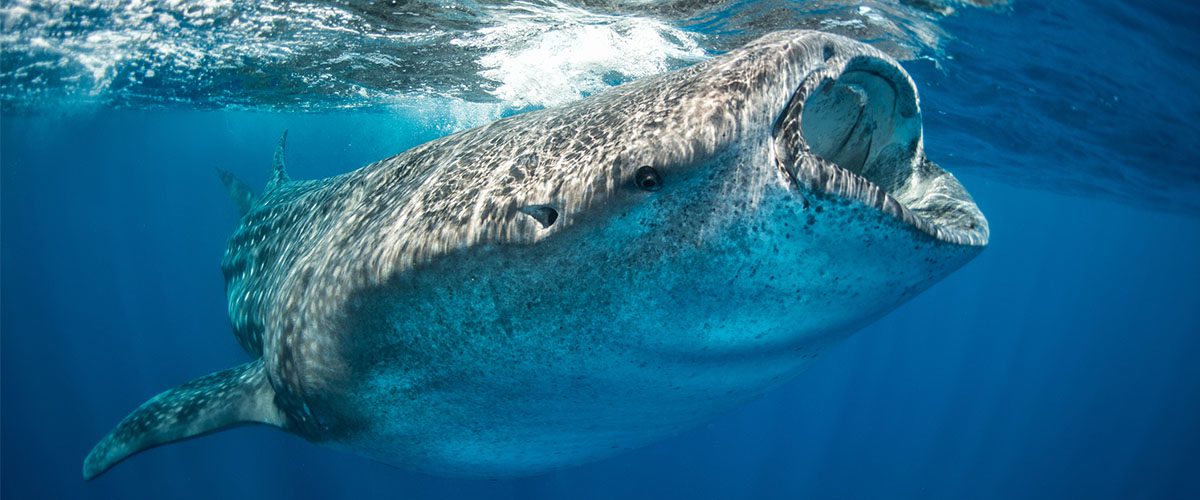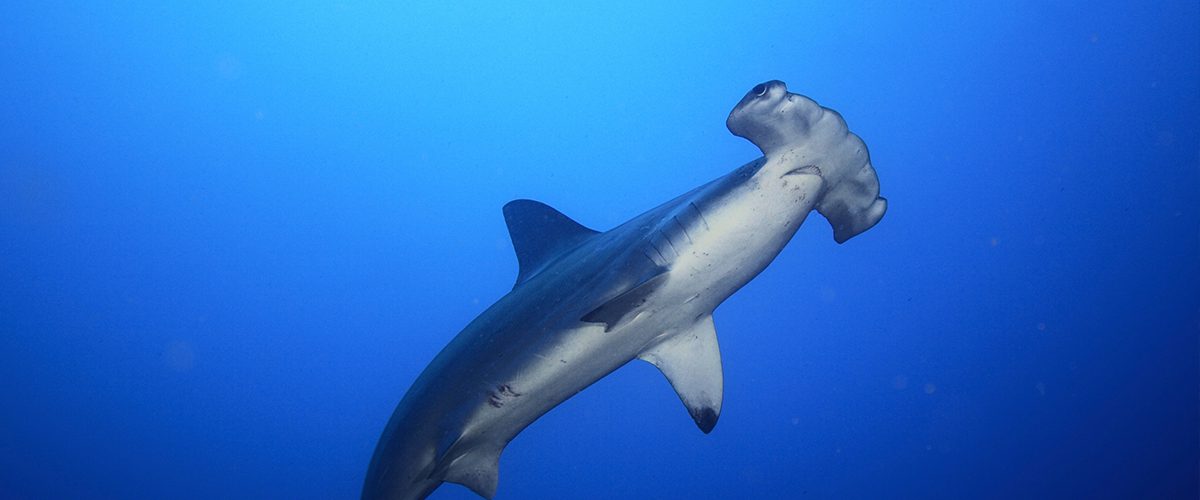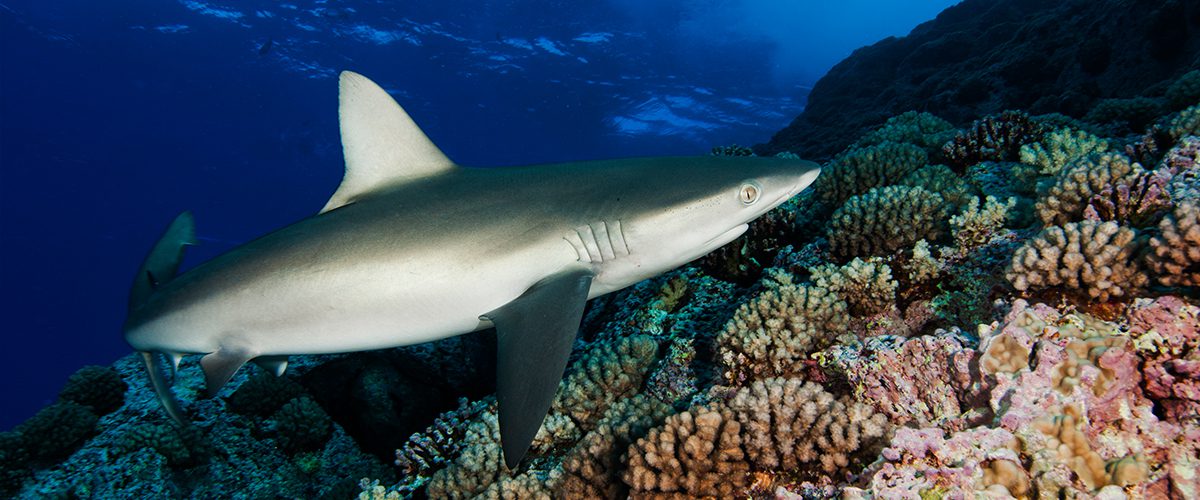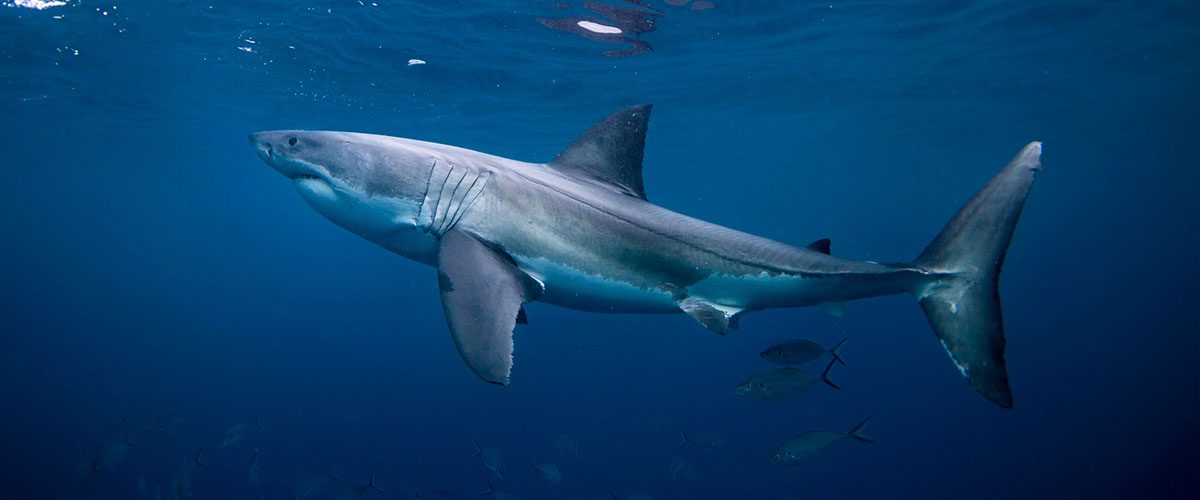July 25, 2022
Sharks: Fact vs. fiction
Estimated reading time: 0 minutes
Sharks are important for the health of the ocean but for years they have earned a bad rap, displayed as human-eating, vicious, hungry predators. But who really is being hunted? In the past 50 years, there has been a 71 per cent decrease in the size of global shark populations!
The loss of sharks is devastating because our marine ecosystems rely on them. We need sharks in our waters. Read on to unravel shark fact from fiction and discover the truth behind some of the most common myths.
1. Sharks are the top predators in the ocean
Fiction: With over 100 million shark deaths a year – humans are at the top of the food chain.
Sharks mature slowly and when they do reproduce, they have only a few young. This makes it very difficult for them to sustain their population numbers when so many are being killed. Destructive fishing methods, such as illegal, unreported, and unregulated fishing, as well as a demand for shark fins, have led to high numbers of shark deaths every year. In 2019, Oceana Canada successfully advocated for banning the import and export of shark fins in this country.
2. All sharks are giant, vicious, hunters
Fiction: There are many sharks that feed exclusively on tiny creatures like plankton.
The largest shark in the world, the whale shark, is one of the least dangerous sharks in our oceans. Whale sharks, along with many other shark species, are filter feeders which means that they feed on tiny crustaceans that float in the water. With three filter-feeding shark species and over 400 species of sharks in total, there is a lot of diversity in size, habitat and prey preferences.

Whale sharks are the biggest shark in the world, but they feed on some of the tiniest creatures in the sea.
3. All sharks must keep moving to stay alive
Fiction: Some sharks actively pump water over their gills while lying on the ocean floor.
While most species need to be actively moving to breathe, there are many species of sharks where that rule does not apply. For all sharks, water must pass over their gills so small capillaries can take in oxygen. Some species use swimming to pass water over their gills while others can actively pump water in and out.

Hammerhead sharks are a species that must actively swim to breathe.
4. Sharks have no purpose in the ocean
Fiction: Sharks keep our ocean ecosystems in balance, play a significant role in the food web as apex predators, and are direct indicators of biodiversity in the ocean.
Sharks limit the abundance of their prey, which has a cascading effect on the entire food web, keeping the population sizes of animals at healthy levels. They help remove the weak and the sick in prey populations as well as keep the balance with other marine predators to ensure species diversity.

Sharks play a critical role in maintaining the balance and biodiversity of ecosystems across the world.
5. Sharks are endangered
Fact: There are 143 species of shark listed on the IUCN Red List, categorized from vulnerable to critically endangered.
Overfishing, bycatch and shark finning are all contributing to a significant decline in shark populations worldwide across many different species. One example is the shortfin mako, who is listed as endangered on the IUCN Red List. This shark often frequents Canadian Atlantic waters in the summer.

Great white sharks are listed in the Committee on the Status of Endangered Wildlife in Canada (COSEWIC) as endangered.
Help keep our oceans safe and healthy for all animals that call it home by becoming a Wavemaker. Join us to receive the latest ocean news, campaign updates and ways to take action here >>

